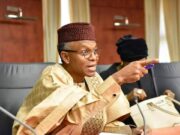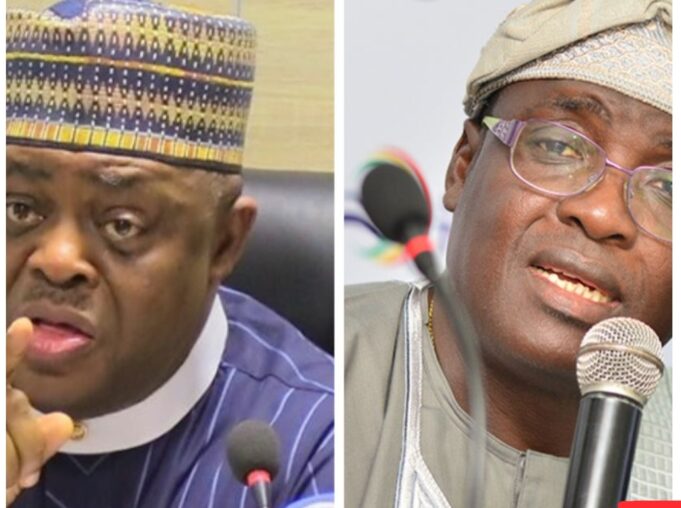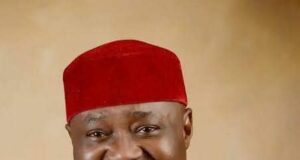The Federal Government is currently vetting individuals to fill diplomatic positions across its 109 missions, including 76 embassies, 22 high commissions, and 11 consulates, DAILY GAZETTE reports
Sources familiar with the process have revealed that former Minister of Aviation under President Obasanjo, Femi Fani-Kayode, and former Deputy Governor of Lagos State, Femi Pedro, are among the nominees for these ambassadorial roles.
It has been further reported that the vetting process is decentralized, with candidates required to report to the nearest Department of State Services (DSS) office for screening.
A Presidency official, who spoke under anonymity, confirmed that several candidates had already been asked to provide personal details, including their educational and professional backgrounds.
“They’re already doing security checks with DSS. When they have cleared security checks, we will release the list. Only those who have been cleared are announced. The process is ongoing. I know that we should have a list before the end of this month (April),” the official revealed.
A second source added, “The vetting is not done centrally. It is based on the location of the nominees. Nominees have been reached to provide personal history and information such as where they attended school, what appointments they have held, and the like. So, it is by location.”
Since September 2023, President Bola Tinubu has been operating his foreign policy, which includes his 4Ds—Democracy, Development, Demography, and Diaspora—without appointing ambassadors.
That month, Tinubu undertook a sector-wide review of Nigeria’s foreign policy, which led to the recall of over 83 career and non-career ambassadors from their positions.
Sources close to the President confirmed that he spent part of his holiday in December reviewing the names of ambassadorial nominees and intended to submit a consolidated list to the National Assembly by the end of the month.
However, reports from January indicated a change of plans.
The delay in the process was reportedly due to financial constraints, particularly the $1 billion required to address the arrears owed to foreign service officials, replace aging vehicles, and renovate embassy buildings.
A government official, speaking on condition of anonymity, explained, “You see, the major issue is money. Not money to pay them [ambassadors], because how much is their salaries and benefits? The main money is CAPEX [Capital Expenditure]. By the time they put the cost together to fix the issues, it is running to almost $1bn. Most of those embassies, almost 90 per cent, are rundown. Either the residence is not good, the embassy does not have a functional office, or their rent has expired. The embassies that are buoyant may not be up to 10 as we speak. I understand that some of them don’t have serviceable vehicles.”
“The last vehicles they bought were from 10 years ago. Some of them are broken down, and ambassadors cannot use such vehicles because they carry the image of the country. Some of them don’t even have power and running water. So, if you post ambassadors there today, you’re sending them to trouble.”
Minister of Foreign Affairs, Yusuf Tuggar, also acknowledged the delays, attributing them to financial limitations. “It is a money problem,” Tuggar stated during a ministerial briefing in Abuja last May.
He emphasized the importance of funding to ensure the effective operation of missions abroad, stating, “there is no point sending out ambassadors if you do not have the funds for them to even travel to their designated countries and to run the missions effectively, one needs funding. Mr President is working on it, and it will be done in due course.”
A foreign service official explained that while provisions had been made in the 2025 budget to address some of the financial challenges, the funds were still insufficient.
Although the full list of nominees is classified, senior Presidency and foreign service officers confirmed that several high-profile and controversial figures are being screened for the positions.
One official remarked, “They’re going to announce the appointments soon. They are being screened as we speak. The names of the nominees are highly classified for now because not every one of the names listed will eventually make it through.”
“FFK [Femi Fani-Kayode] is on the list. These are some of the controversial names that have been put forward as well. Then there is Fola Adeola [founder of Guaranty Trust Bank Plc] and Femi Pedro too. They’re moving on with the process more quickly this time.”
Another official explained the reason behind the thorough vetting, stating, “the nominees are being vetted, and background checks are being conducted on them. It is usually done so that the nominees will not have any security issues and their deployment will not have a negative impact on the country.”
Although rumors circulated that Reno Omokri, a former aide to ex-President Goodluck Jonathan, was also on the list, a credible source within the Presidency denied it, stating, “Reno is not on the list. But FFK is there.”
Bayo Onanuga, the President’s Special Adviser on Information and Strategy, also weighed in on the delay, explaining that the ambassadorial list includes both career and political ambassadors.
He added, “Don’t forget that the ambassadorial list has two components. There are career ambassadors and political ambassadors. The foreign affairs list and the consolidated list will still go through certain processes before they are released.”
Two of the nominees contacted for comment declined to speak on the matter, neither confirming nor denying their inclusion in the list.

















